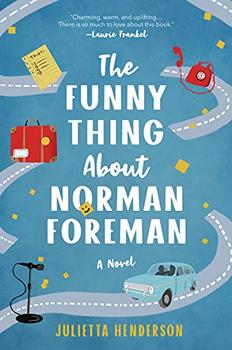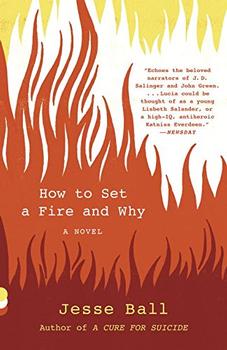Summary | Excerpt | Reviews | Beyond the book | Read-Alikes | Genres & Themes | Author Bio

A Novel
by Matt GreeneMatt Greene's debut, Ostrich, opens with twelve-year-old Alex Graham just about to undergo brain surgery for a tumor that has been causing intense, disruptive seizures. After his surgery, he begins to notice strange things. His mother is hiding out in her new dark room. His father, a driving instructor, is spending more time with his Driver's Ed students. Alex wonders, with a helpful nudge of his friend Chloe, if his father is having an affair and his parents are getting a divorce. And if that's not upsetting enough, Jaws 2, his hamster, is thinner than before Alex's surgery and has less energy. What's up with that?
In some ways, Alex is just a regular kid on the cusp of being a teen. He discovers Internet pornography. He experiences his first kiss. His father lets him get behind the wheel of his Driver's Ed car. But Alex is also precocious and quirky - he is obsessed with mnemonics for one thing (See 'Beyond the Book'). And the way Matt Greene leads us through Alex's coming of age is anything but regular. His writing is extremely sharp-witted. One of my favorite moments is when Alex explains his skills in foreign languages: "I can swear in sixty-seven different languages. But I can apologize in only three, which means I could get beaten-up in sixty-four countries." That's seriously funny stuff, but it's also clever. Greene's Ostrich has been compared to Mark Haddon's The Curious Incident of the Dog in the Night-Time. Both authors create similar protagonists – boys with endearing personalities and bizarre brains, and like Curious Incident, this novel too should work for older teens and adults.
To be perfectly honest, though, there are moments where Ostrich becomes tedious. Tangents run amok in this story: Alex is sitting in class learning about quadratic equations when, out of left field, he contemplates an episode of Star Trek where the crew travels to a parallel universe called "Mirror Mirror," in which each of them finds an equal but opposite counterpart; and then, off again in another direction, Alex muses on the Uncertainty Principal, which is, if you care to know, the principle that the momentum and position of a particle cannot both be precisely determined at the same time. But that's the problem. I didn't always want to know. Matt Greene is a smart writer, and Alex is drawn with deft, clever strokes, but I didn't always want to follow his meandering thoughts. They weren't always all that interesting.
Then again Alex has these seizures and he has just had brain surgery for goodness sake. So maybe his mind can't help but wander. And that is extremely interesting to me – the way the structure of the story parallels the protagonist's personality. Ultimately it sustained me as I watched Alex try to both move through typical pre-adolescent experiences and solve the mystery of his parents' – and hamster's – odd new behavior.
I leave you with this: Alex has his first seizure while he is riding his bicycle. A wrapper blows onto the fork of his wheel and as he leans over the front of his bike to pull it away, he has a vision of falling. He can see what will happen. He can, in essence, see the future. But after he falls, and is lying on the sidewalk he says:
We don't have a future in English because there's no such thing. It was just like she'd [his teacher] said. We liked to imagine we could reach out and touch it, hold it in our hands (and taste it in our spit), because that's what let us believe we were in control, but we never could be, because that would never happen. Because the future dies at our touch. Which would explain why I couldn't not fall off my bike that day. Because when I lifted my vision and saw myself flying improbably through the air, it wasn't the future I was looking at.
The future is never in our grasp. Once we think we have managed to catch it between our fingers, pressed it into the palm of our hands, and closed our fists tightly around it – it is gone. We have only trapped the present. We are only in the now. And the future has run ahead of us once again. This is a big problem for Alex. And perhaps it is a problem for us all. Or perhaps the present is all that we have, and that is enough.
![]() This review
first ran in the October 16, 2013
issue of BookBrowse Recommends.
This review
first ran in the October 16, 2013
issue of BookBrowse Recommends.

If you liked Ostrich, try these:

The Funny Thing About Norman Foreman
by Julietta Henderson
Published 2022
Julietta Henderson's delightfully charming, tender and uplifting debut takes us on a road trip with a mother and son who will live in the reader's heart for a long time to come, and teaches us that--no matter the odds--we must always reach for the stars.

by Jesse Ball
Published 2017
A singular, blistering novel about a teenage girl who has lost everything - and will burn anything.
From the moment I picked your book up...
Click Here to find out who said this, as well as discovering other famous literary quotes!
Your guide toexceptional books
BookBrowse seeks out and recommends the best in contemporary fiction and nonfiction—books that not only engage and entertain but also deepen our understanding of ourselves and the world around us.